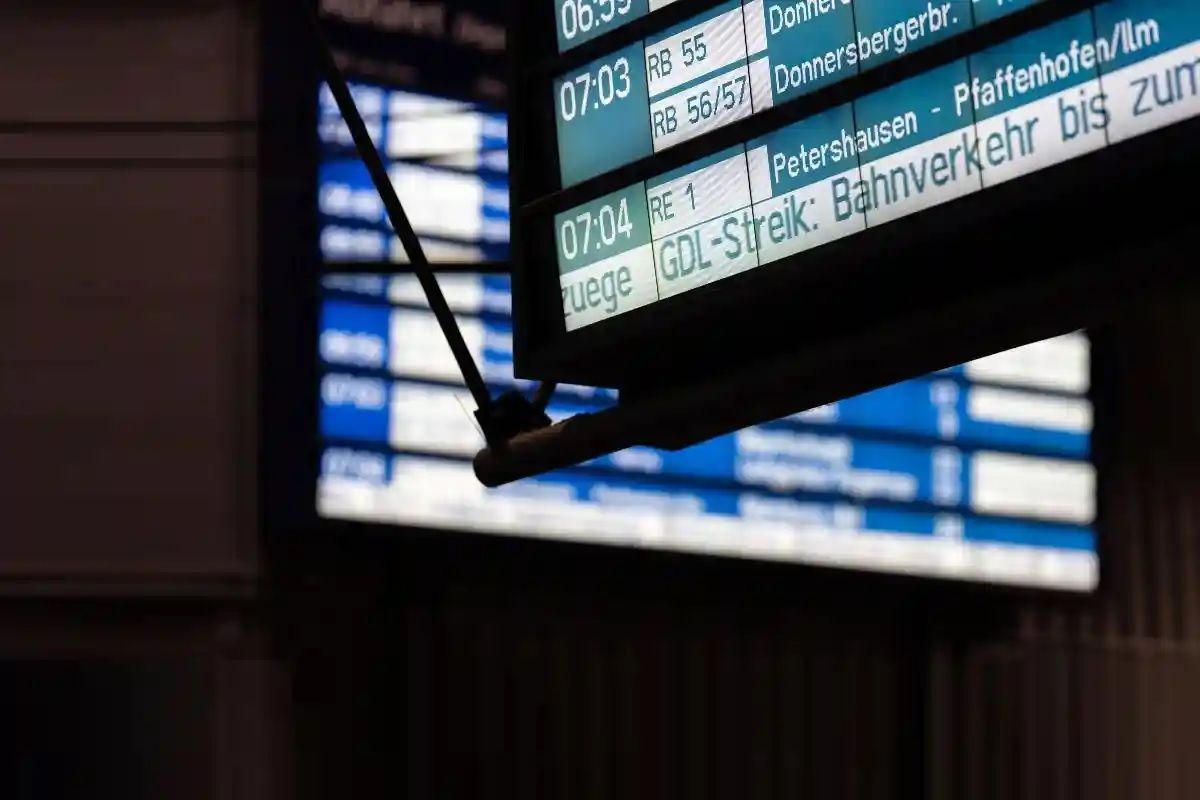January railway strikes in Germany: what it could mean for train passengers nationwide.
Related topic: Where public transport will be more expensive from January 1
January railway strikes in Germany: The cause
To compensate for inflation and the rising cost of living, the GDL union demands a minimum salary increase of 555 euros per month for a year and a tax-free bonus of 3000 euros.
In response, Deutsche Bahn proposed an 11% salary increase over 32 months and a bonus of 2850 euros. However, the ongoing dispute revolves around the union's demand for a reduction in working hours.
The GDL union is seeking to reduce the weekly working hours from 38 to 35.
They threaten with 'unlimited' strikes. What does that mean?
Recently, German railway workers have faced 'warning strikes,' where employees go on strike for a day or even just a few hours. These are often used as a negotiating tactic in key contract negotiations between relevant unions and employers—to demonstrate leverage and how integral the service is to life in Germany.
Unlimited strikes last quite a while. In the future, an unlimited strike could mean workers stop working for 24-48 hours—or even longer. In extreme cases, workers who voted for an unlimited strike might not return to work for weeks.
While in a warning strike, workers usually specify how long they will strike, an unlimited strike is indefinite. This means the union may not announce when workers will return to work after notifying of the strike.
Which services will be affected?
GDL is the union representing people working on the German state railway, Deutsche Bahn. Their strike will lead to a halt in intercity and international rail transport across Germany.
In addition, DB also operates regional trains and S-Bahn, which many people rely on for local transport or commuting to work. Local transport, managed by municipal or regional associations—usually buses, trams, U-Bahn, and even local ferries—are typically represented by different unions.
The GDL strike will not directly affect them. However, if S-Bahns are not operational, they may become more crowded than usual as people seek alternative ways to move around the city.
Travelers can also expect increased demand and, consequently, prices for private bus services, car rentals, taxis, and even flights.
Is it certain, and when will it start?
The GDL claims that a recent vote by union members gives them a mandate to conduct unlimited strikes starting from January 7, ruling out the possibility of labor action during the holidays, so travelers can breathe a sigh of relief as their Christmas plans remain intact.
However, starting from January 7, the union can carry out its strike threat at any time.
So far, they haven't announced whether they intend to strike and when. Usually, such strikes are announced with a few days' notice. Again, for an unlimited strike, there may not be a specified end date even if notice is given.
However, it's possible that DB and the union will reach an agreement before then, avoiding the strike.
What happens if I have a ticket booked during the strike?
Compensation is paid to railway travelers in Germany who experience delays or cancellations due to circumstances that DB could reasonably have prevented. Weather conditions are not considered, but strikes usually are.
You can find more detailed information about your rights in our article. Usually, however, you can receive a voucher or refund. DB may also automatically refund all tickets booked on the day of the strike in the days following its conclusion.
Related topics:
The ongoing dispute between the GDL union and Deutsche Bahn could significantly impact Life in Germany, especially for train passengers, as strikes might lead to disruptions in intercity and international rail transport.
In case of an unlimited strike by railway workers, services like S-Bahns, buses, trams, and even local ferries might become more crowded or see price increases as passengers seek alternative means of transportation.








